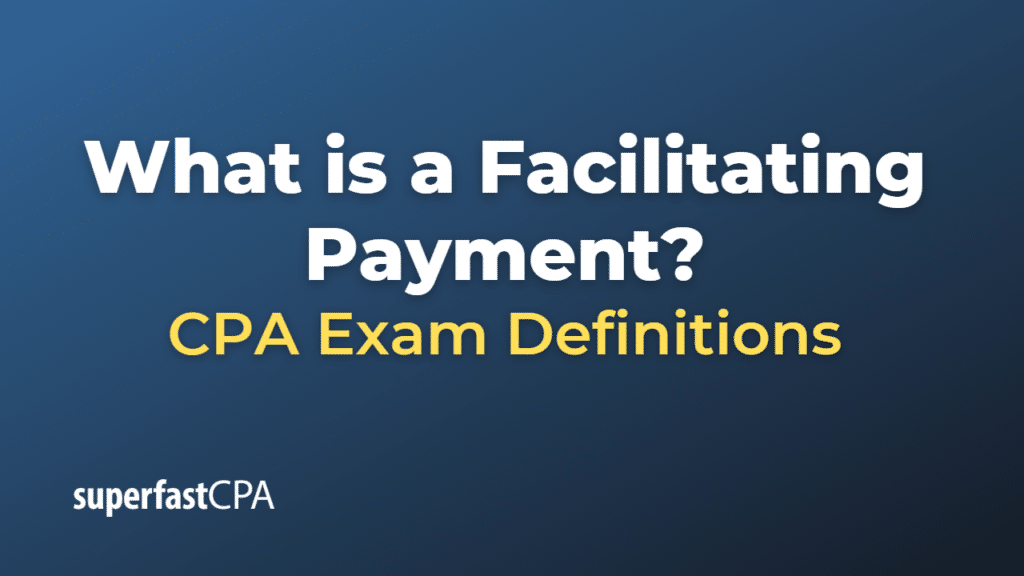Facilitating Payment
A facilitating payment, also known as a “facilitation” or “grease” payment, is a small payment made to a public or government official in order to expedite or secure a routine, non-discretionary governmental action. Such actions might include issuing licenses or permits, processing government papers, providing services such as mail pick-up and delivery, or scheduling inspections.
The key distinction between facilitating payments and bribes is that facilitating payments are typically small amounts given to low-level government officials to perform their regular duties more quickly, while bribes are generally larger amounts given to induce officials to act in the payer’s favor, often contrary to their official duties.
However, the distinction is not always clear, and facilitating payments can be considered bribes in many jurisdictions, including under the UK Bribery Act. Even where they are technically legal, such as under certain interpretations of the U.S. Foreign Corrupt Practices Act (FCPA), facilitating payments are generally considered ethically questionable and may be against the policy of many organizations.
As such, facilitating payments are generally discouraged or outright prohibited in international business, and companies are encouraged to implement strong anti-corruption measures to ensure compliance with relevant laws and regulations.
Example of a Facilitating Payment
Imagine you’re an operations manager for an international manufacturing company, and you’ve just shipped a large order of goods to a customer in a foreign country. However, the goods are being held up in customs at the foreign port. The customs official tells you that there’s a backlog, and it could take several days to process your goods.
However, the official then says that for a small “expediting fee” of $50, he can make sure your goods are processed today. This is a facilitating payment. You’re not trying to get the official to do anything illegal or contrary to his duties; you’re just trying to speed up a process that’s within his normal job duties.
However, even though this might seem like a simple solution to your immediate problem, this facilitating payment can have significant legal and ethical implications. Depending on the jurisdiction and the specifics of the situation, this payment could be considered a bribe and could potentially violate anti-bribery laws or your company’s policies. It’s crucial to consult with your company’s legal and compliance teams to understand the best course of action in these situations.













